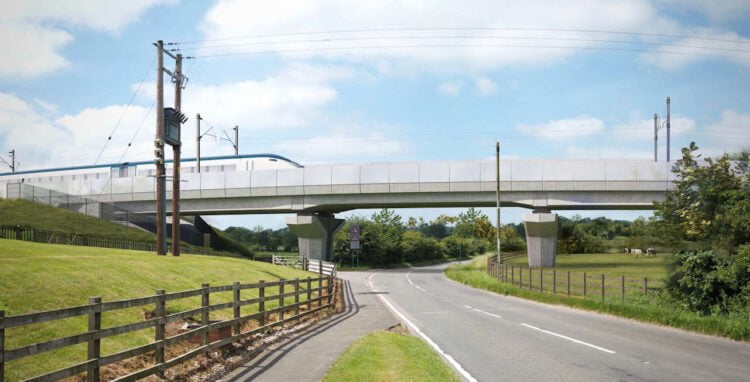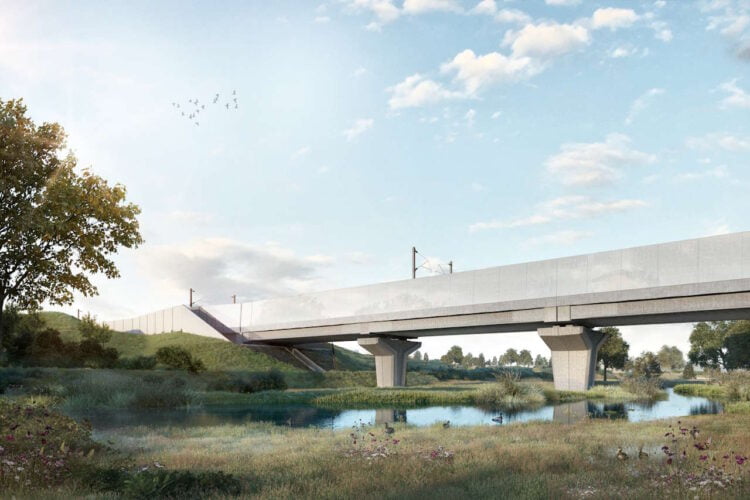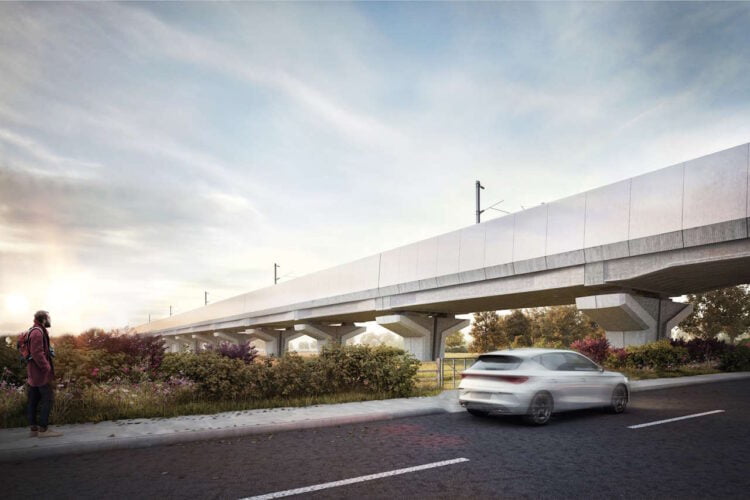Proposals for the design of the viaduct that will carry HS2 over the River Blythe in Warwickshire as well as the plans for the associated landscaping are to be shown at a public event in Hampton-in-Arden near Solihull next Tuesday, 5 December.
The event will be held between 2 pm and 7 pm at Fentham Hall in Hampton-in-Arden, and representatives from HS2 Ltd and its contractor Balfour Beatty VINCI will be available to provide more details and answer questions. Feedback from a local consultation exercise has been taken into account, especially concerning tree planting and protecting the local environment.

Anyone wishing to attend the event should register their interest in advance on the HS2 events page here.
The viaduct will be 475 metres long just south of the new HS2 Interchange Station in Solihull. It has a low profile is designed to fit in with the flat, agricultural landscape as it crosses the River Blythe, the floodplain and Meriden Road near Hampton-in-Arden. The space under the viaduct will allow safe passage for a range of wildlife while views through and around it will be maintained through its design, as well as the visual impact from its mass and minimising noise for local residents.

Ecology work will include restoration and creation of marshy grassland, planting new hedgerows, and woodland edge planting, and installing bat and bird boxes, and hibernacula homes for amphibians and reptiles. Wooded embankments will be created at either end of the viaduct so that trains emerge onto the viaduct from a woodland canopy.

During construction of the viaduct, an alternative route will be built so that the site can be accessed directly from the A425, without the need to use Meriden Road.
Christoph Brintrup, HS2’s Head of Landscape said: It s important that we listen to local communities as we finalise the design for these key HS2 structures. We re pleased that our latest design for the River Blythe Viaduct is responsive to its surrounding context by focusing on the conservation, enhancement and restoration of the rural landscape.
Our plans will sensitively integrate the viaduct into the wetland and provide additional ecological value by reinforcing the riverside habitat and conserving the historical character of the area.
Nick McGough, Director at Weston Williamson + Partners, and Lead Architect for the Balfour Beatty VINCI Design Joint Venture, which is constructing the line in the West Midlands, said: The River Blythe Viaduct has been designed as a low horizontal structure skimming across the landscape.
“We’ve reduced the total length of the viaduct by 150 metres from its original design, saving almost 800 tonnes of carbon. To maximise views through the viaduct, the deck has been kept as slim as possible, with the amount of concrete needed for the piers reduced by 18%.
“As well as physically reducing the material used, the design makes use of textured surfaces and refined detailing, as well as stone-like highly polished parapets which will reflect the sky and surroundings, reducing the visual mass of the structure and helping to integrate it with its setting.”






Responses